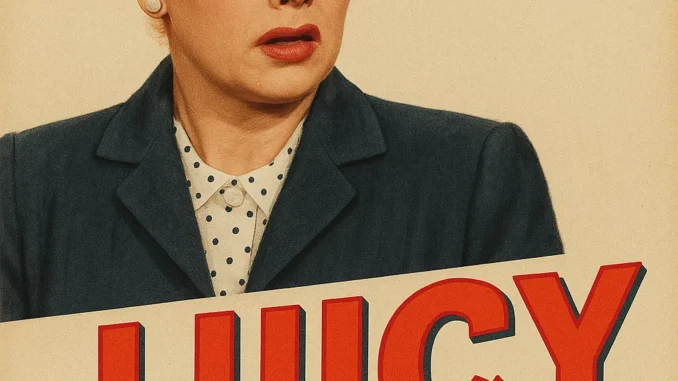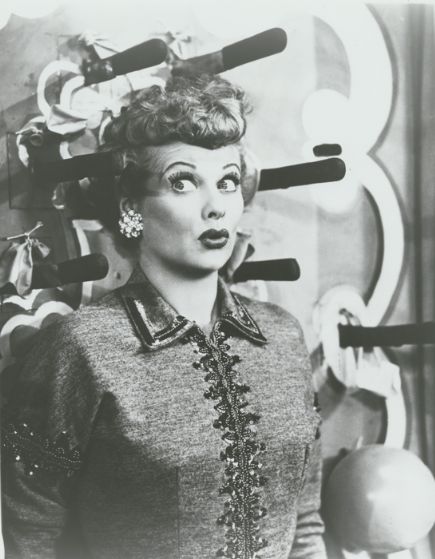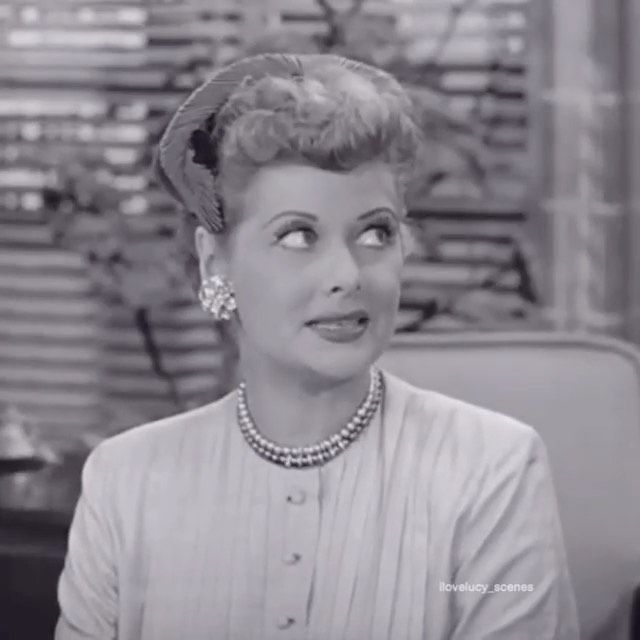
In the history of American television, I Love Lucy (1951–1957) was more than just the pioneering sitcom—it was a work of art that reflected everyday life with humor, charm, and boundless creativity. The show left behind countless iconic episodes, and among them, “Lucy Tells the Truth” (Season 3, Episode 6) stands out as a perfect example of how comedy can illuminate the contradictions of ordinary human existence.
A Simple Bet, a Spiral of Chaos
The story begins with what seems like an innocent challenge: Lucy Ricardo is dared by her friends to live for 24 hours telling nothing but the truth. Known for her impulsive nature and tendency to fib her way out of trouble, Lucy accepts—not just for pride, but because she wants to prove everyone wrong.
But instead of reaping a reward, her decision quickly backfires. Lucy blurts out uncomfortable truths at a social gathering, leaving everyone awkward. The chaos peaks when she goes to audition for a show and is forced to be brutally honest with the judges—earning her an instant rejection. What started as a harmless bet soon turns into a valuable lesson: absolute honesty can be more disastrous than a harmless lie.

Honesty as a Double-Edged Sword
What makes this episode unique is how it explores a timeless paradox: while society celebrates honesty, daily life often relies on small “white lies” to keep things running smoothly. By vowing to tell the truth, Lucy shatters this fragile balance and exposes realities no one actually wants to hear.
The humor doesn’t just come from the punchlines—it emerges from the discomfort of those around her. Viewers are reminded that people rarely want the “whole truth,” but rather the version that makes them feel comfortable. The clash between social etiquette and brutal honesty is what drives the comedy with such sharp wit.
The Portrait of Lucy Ricardo
This episode continues to highlight Lucy’s defining traits: impulsive, overly confident, and desperate to prove herself. Accepting the challenge shows her willingness to dive headfirst into absurd schemes, no matter how messy the outcome. That’s what makes her such a perfect comic figure: she constantly “digs her own hole,” and the audience laughs while sympathizing with her struggles.
Lucy Ricardo also serves as a satirical reflection of the 1950s American housewife—confined to domestic life but always yearning to break free through little plots and antics. In “Lucy Tells the Truth,” her attempt to take control of her own narrative ironically ends in disaster, making her both ridiculous and relatable.
Social Commentary: Do We Really Want the Truth?
Beyond the laughs, this episode raises thoughtful questions about the balance between honesty and social politeness. Do we truly want people to be honest with us, or do we rely on small pretenses to keep relationships intact?
Lucy’s predicament shows how human communication is more complicated than simple moral rules. Honesty without tact can wound more than it helps. By exaggerating this scenario, the show cleverly makes audiences laugh while nudging them to reflect on their own daily interactions.

The Genius of Lucille Ball
A major reason why “Lucy Tells the Truth” is remembered as a classic is Lucille Ball’s performance. With her expressive face, perfect comic timing, and unmatched physical humor, she turns every scene into a showcase of comedic brilliance.
One highlight is the audition scene, where Lucy must tell the blunt truth to the judges. Ball transforms what could have been tense or mean-spirited into pure comedy, delivering awkward honesty with such charm that it becomes unforgettable. It’s a reminder of why she earned her reputation as the “queen of sitcoms.”
The Lasting Power of a Classic
Decades later, “Lucy Tells the Truth” endures as proof of comedy’s power: to take human flaws, anxieties, and contradictions and transform them into laughter. The episode reflects 1950s American social norms while touching on a timeless issue: do we actually want to hear the truth?
On a broader scale, I Love Lucy redefined television by pulling humor from the fabric of everyday life—domestic quarrels, social awkwardness, personal insecurities—and amplifying them into universal comedy. That is why, even more than 70 years later, episodes like “Lucy Tells the Truth” still resonate. When comedy is rooted in human nature, it never goes out of style.